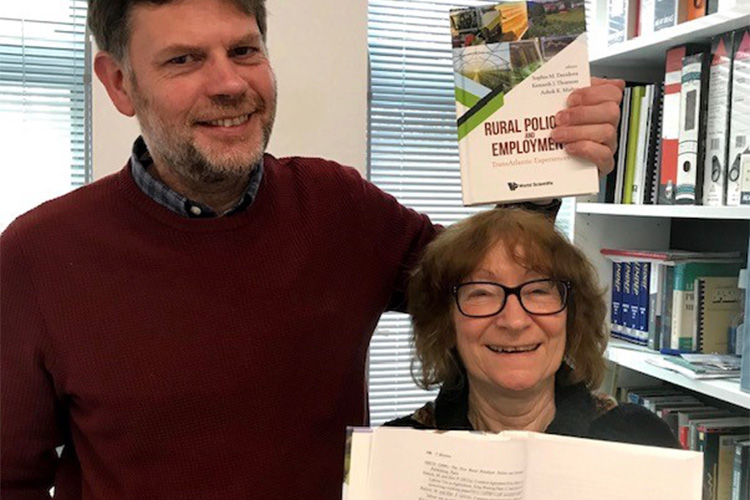As the Brexit Transition Period draws to a close two CEAS members and members of the Kent Signature Theme team (Food systems, natural resources and environment) have won a major EU Horizon 2020 research award. The award entitled “Trade4SD” aims to investigate the degree to which positive linkages between trade and sustainable development can be fostered. The Project team, drawn from across the EU, Ghana, Thailand and Vietnam, have been awarded 4 million euro of which just over half a million euro will come to Kent. The team from Economics, Professors Sophia Davidova and Alastair Bailey, both played an instrumental part in drawing together the project consortium and designing the research project itself.
“Trade is a central factor in shaping not only global, but also regional and local development.” Bailey explained “Trade policy has an especially important part to play in achieving the UN Sustainable Development Goals (SDG’s). The premise for this proposal is that trade has the power to produce positive outcomes when the policies which define the rules of the game are framed and designed in a way to promote access to markets, fair prices and standards of living for farmers, as well as alleviating rural poverty and ensuring sustainable farming practices.”
Addressing the relation between trade and SDGs requires an integrated approach to policy-making and inclusive governance. The main objective of this project is to contribute to build new opportunities for fostering the positive sustainability impacts of trade supported by improved design and framing of trade policy at national, EU and global level, including WTO modernization, increased policy coherence at different domains including agricultural, energy, climate, environmental and nutritional policies. The SDGs agenda requires a holistic approach allowing the contextual evaluation of several dimensions at the same time by measuring co-benefits and trade-offs. For this reason, we propose an integrated and systemic approach that combines several quantitative models from different perspectives, and qualitative methods such as specific country/supply chain case studies, Lab-in-the Field experiments and a dynamic trade game considering the fact that SDGs are highly context-related. A wide consultation process involving stakeholders both in the EU and in the partner countries in all the project stages will ensure the transparency and balance of conclusions and policy recommendations. The proposal is directly connected to the work programme “Food security, sustainable agriculture and forestry, marine, maritime and inland water research and the bioeconomy” through analysing how agricultural trade can contribute to meet global sustainability challenges and objectives.
The research was designed by Davidova’s longstanding International network, with a core team of five. She tells us “This research is motivated by our desire to see trade, particularly in agricultural goods restored as a force for good in the developing world,” as well as to achieve “improved sustainability in food production fostered by enhanced trade between the EU and developing nations under sympathetic trading relationships and rules.”
The full project team, lead by Professor Attila Jambor from Corvenius University Budapest, includes two UK institutions, Kent and Sussex, and collaborators from 9 other EU and developing nations.

